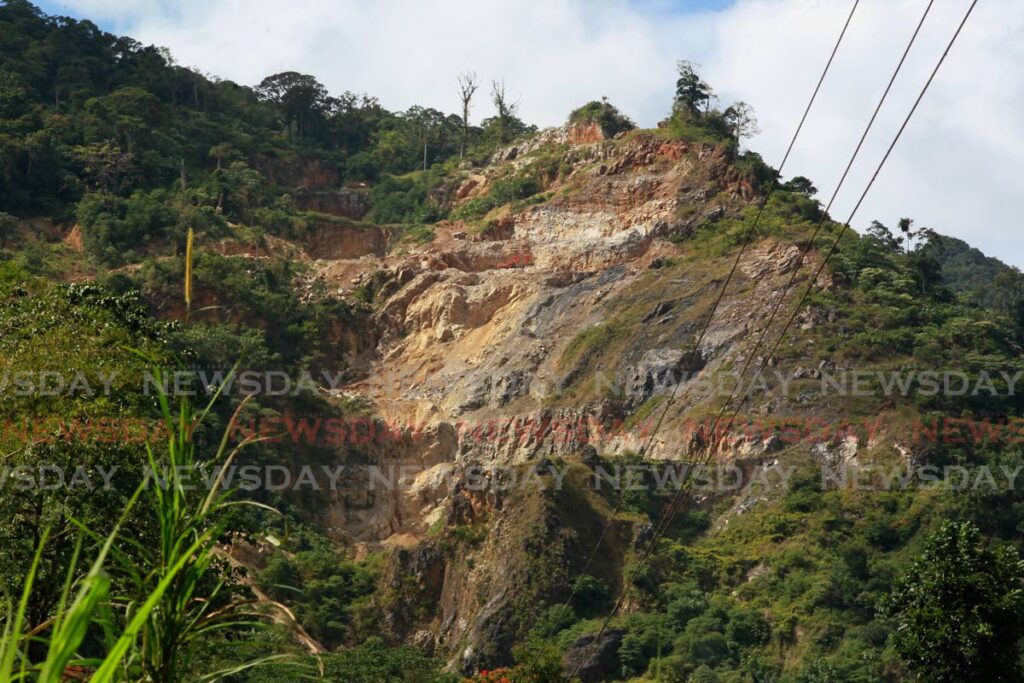TTEITI chairman: Mining still important to Trinidad and Tobago

TT Transparency Extractive Initiative (TTEITI) chairman Gregory McGuire has said the domestic mining sector remains important to Trinidad and Tobago's economy.
He also identified collecting unpaid royalties, licensing quarry operators and illegal quarrying amongst the challenges which continue to affect the sector.
He made these comments during a virtual event the group held on Wednesday.
McGuire said the mining sector continues to have significant strategic value to TT and the rest of the world.
While issues such as climate change, the covid19 pandemic and the ongoing war in Ukraine continue to engage most of the world's attention, McGuire said, "We must not lose sight of the fact that there is still attention that we must place on the role of the mining sector, mining, quarrying and minerals."
He told participants about the continued importance of minerals in a wide range of uses, from aggregate for construction and road surfacing to precious metals, such as gold and silver.
"Minerals are extremely important. In this era in particular, we find that minerals are critical inputs into some of the emerging renewable energy technologies."
Referring to the TTEITI's 2022 State of the Extractive Sectors report, McGuire reminded participants about information that is well known to the public about the state of the domestic mining sector today.
After underscoring the importance of transparency in the activities in TT's extractive sectors and the role played by TTEITI in this regard, McGuire said collecting unpaid royalties from quarry operators remains a challenge.
"This (amount of unpaid royalties) is now estimated at around $194 million."
The report showed the total payments of royalties from companies in the mining sector were $7.9 million (2017), $3.6 million (2018), $3 million (2019) and $2.5 million (2020).
The report said, "Between 2004 and 2019 the Government should have received a total of $222 million from quarry operators, but operators’ payments amounted to $29 million."
Accurately recording the mineral volumes produced is necessary to determine the amount of royalties owed to the Government. The report said the Energy Ministry does not independently verify production volumes of minerals, but relies on reports from quarry operators to do so.
Another longstanding challenge is licensing quarry operators.
McGuire said, "Only an estimated eight out of an estimated 88 operators actually have licences to do the quarrying that they are doing."
A third challenge he identified was quarry rehabilitation and environmental stewardship.
"Unlicensed operators are not necessarily the best at observing standards. The whole bugbear of tackling illegal quarrying remains a very high agenda item."
McGuire welcomed an initiative by the Energy Ministry to procure drones to do surveillance "to attempt to verify production in quarries."
He said it is important for all stakeholders in the sector to collaborate to find solutions to problems affecting the local mining sector, some of which have been ongoing for decades.
McGuire observed the mining sector's under-representation in the TTEITI.
"Only six of the known companies in the sector, currently report to TTEITI."
They include Trinidad Lake Asphalt 1975 Ltd, National Quarries Company, Estate Management and Business Development Corporation (EMBD), Hermitage Limestone and TCL.
McGuire said by reporting to EITI, these companies demonstrate their commitment to transparency and "their devotion to good governance and action."
He was confident other companies in the sector would report to the EITI in due course.
Environmental Management Authority (EMA) official Arnott Jones said the drones being used by the Energy Ministry could assist in safely locating areas where illegal quarrying is taking place.
While the EMA's certificate of environmental clearance (CEC) process is not perfect, Jones said it does provide a safety net with respect to potential environmental damage caused by quarrying.
Asked about the sustainability of the mining sector and balancing its economic importance against environmental protection, Jones said technology has helped the EMA to flag potential environmental breaches in illegal quarrying.
"We observe the increase in illegal quarrying, but then again on the flipside (we see) a more active and vibrant and participatory population helps us counter it."
Former deputy conservator of forests Carlton Roberts said it is possible to rehabilitate lands formerly used as quarries for many uses, including agriculture.
"The options are limitless. But they must be done in a regulated way, in a systematic way."

Comments
"TTEITI chairman: Mining still important to Trinidad and Tobago"